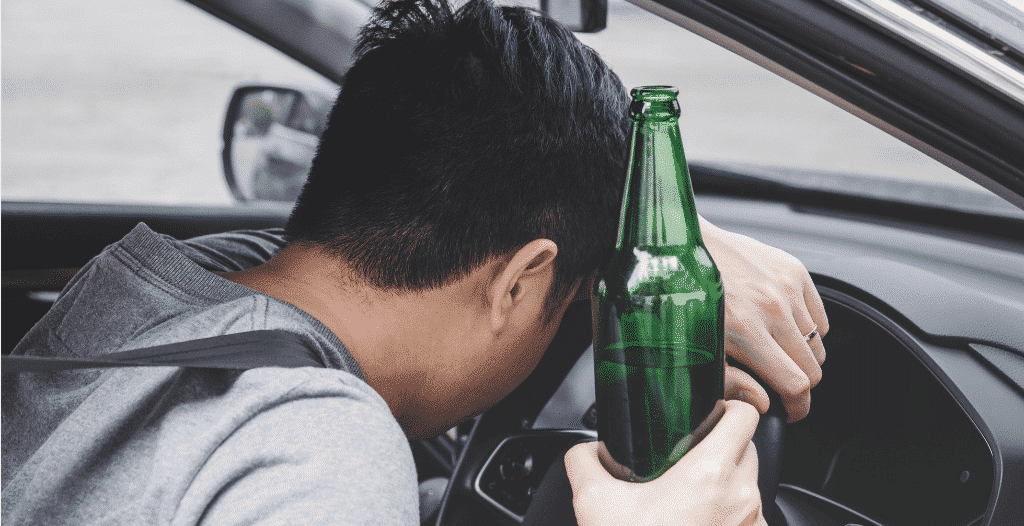I Caused a DUI-Related Accident. Will I Face a Personal Injury Lawsuit?

You are likely familiar with the fact that driving under the influence is a criminal offense that carries legal consequences. It’s important to understand that criminal consequences are not the only legal complications that can arise from a DUI offense. If you were involved in a DUI-related accident, you may find yourself facing a personal injury lawsuit on top of any criminal charges.
Understanding the difference between a criminal and civil legal proceeding as well as knowing what your options are when it comes to disputing or lessening the impacts of a personal injury judgment can be complicated. This post will go over some key considerations to take when facing a personal injury lawsuit following a DUI accident.
Civil vs. Criminal Legal Proceedings
The first thing to understand about a possible personal injury lawsuit that may result from a DUI-related accident is that the case will be completely separate from any criminal charges filed as a result of the same incident. If you were driving under the influence at the time of a car accident, you may be facing fines, the revocation of your driver’s license, or even jail time. Those penalties are part of the criminal legal system and will be determined based on how that case develops under the guidance of the prosecuting attorney for the jurisdiction in which you face the charges.
A civil proceeding, on the other hand, is unrelated to this process. It is possible to have charges dismissed at the criminal level — say, for example, because the evidence was not handled properly — while still facing civil consequences.
One key difference between civil and criminal legal proceedings is who serves as the plaintiff. In a criminal DUI case, it is typically the state bringing charges because of a violation of state law. During a civil proceeding, it is the injured party — the person driving the other vehicle or a passenger who was injured during the accident — who serves as the plaintiff.
Another key difference between criminal and civil proceedings is that criminal charges can be brought for a DUI even if there are no damages. If you are pulled over for suspected DUI and found to be intoxicated, you can face severe penalties even if you did not cause an accident or any harm. A civil proceeding, however, will focus on the damage done, and a plaintiff pursuing a personal injury case must demonstrate the extent of those damages in order to have a successful case.
Purpose of DUI Personal Injury Lawsuits
You may wonder why someone would face additional civil penalties if they’re already facing criminal charges and consequences. Personal injury lawsuits serve two main purposes:
- They act as a deterrent to prevent future negligence.
- They serve to offer compensation for the loss and damages the injured party suffered as a result of the negligence.
Someone who has been injured in a DUI-related car accident may be facing expensive vehicle repair bills, hospital expenses, and loss of wages from time out of work. If the injuries they sustained were substantial, they may be facing lifelong complications, ongoing care, and alterations to their abilities to perform work and earn money. If someone was killed in the accident, their family members may be seeking compensation for medical care, funeral expenses, and their pain and suffering.
Thresholds for DUI Personal Injury Lawsuits
During a personal injury lawsuit, there are many elements that will need to be considered to determine whether or not the plaintiff will receive the compensation they seek and in what amount. As the case moves forward, here are some considerations:
Injury
The plaintiff — that is, the person bringing the personal injury lawsuit forward — must prove that there has been an injury or loss. This person will need to demonstrate damages that justify their request for compensation. This is an area where a personal injury attorney will focus attention and make sure that the injuries or losses are being presented accurately and honestly.
Causation
It will also be up to the plaintiff to demonstrate that the defendant — that is, the person being sued — caused those injuries. They will need to demonstrate that there was negligence on the part of the defendant. In the State of Colorado, courts are bound to “negligence per se,” which means that because the act that caused the injury — in this case, driving under the influence — was a violation of the law, it is automatically assumed to be negligent behavior. However, the plaintiff must still demonstrate that it was the act that caused the damage and not some other circumstances. A defense attorney in a personal injury case will look at the evidence and help establish to what degree other factors — such as the weather or debris in the road — may have been at play in the damages.
Contact A DUI Lawyer As Soon As Possible
If you have been arrested for DUI, particularly if your arrest involved an accident with resulting injuries, and would like to learn more about what you can expect and how you should defend yourself, please contact us today for a free consultation.

